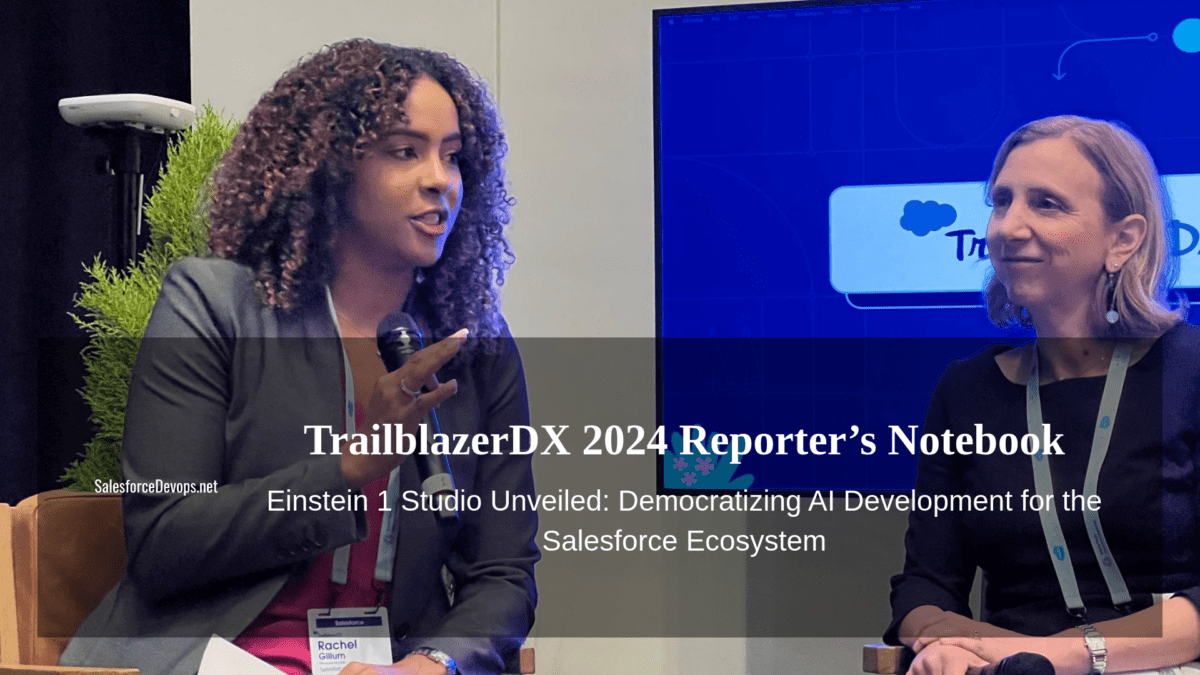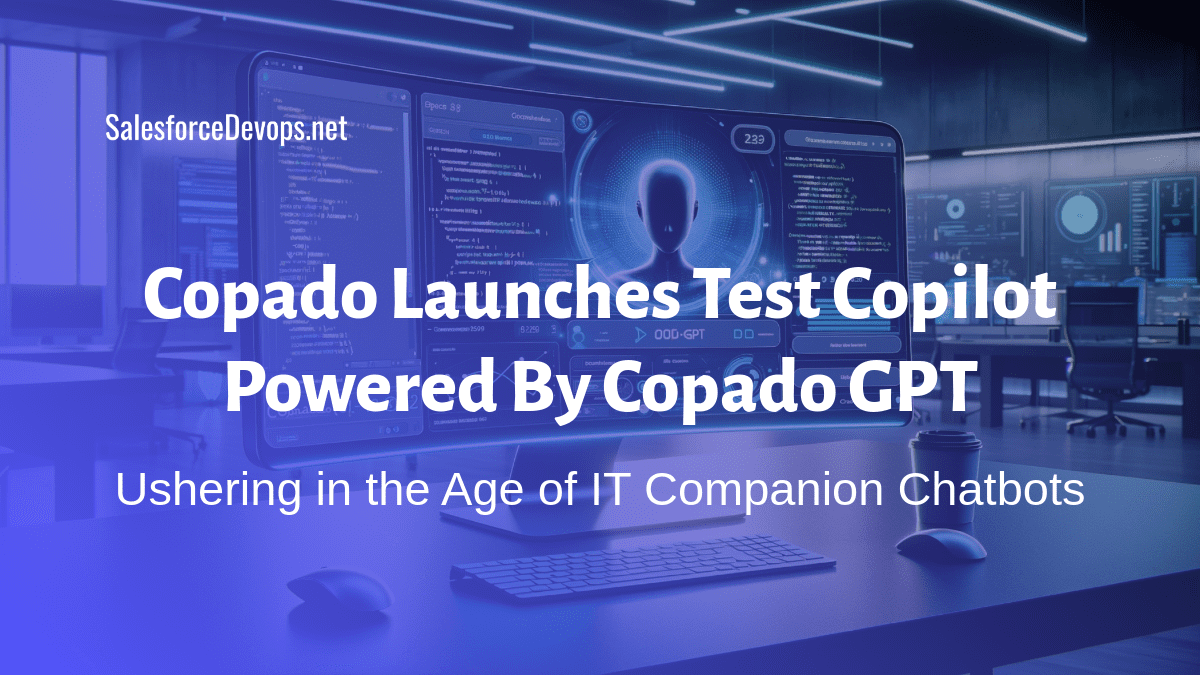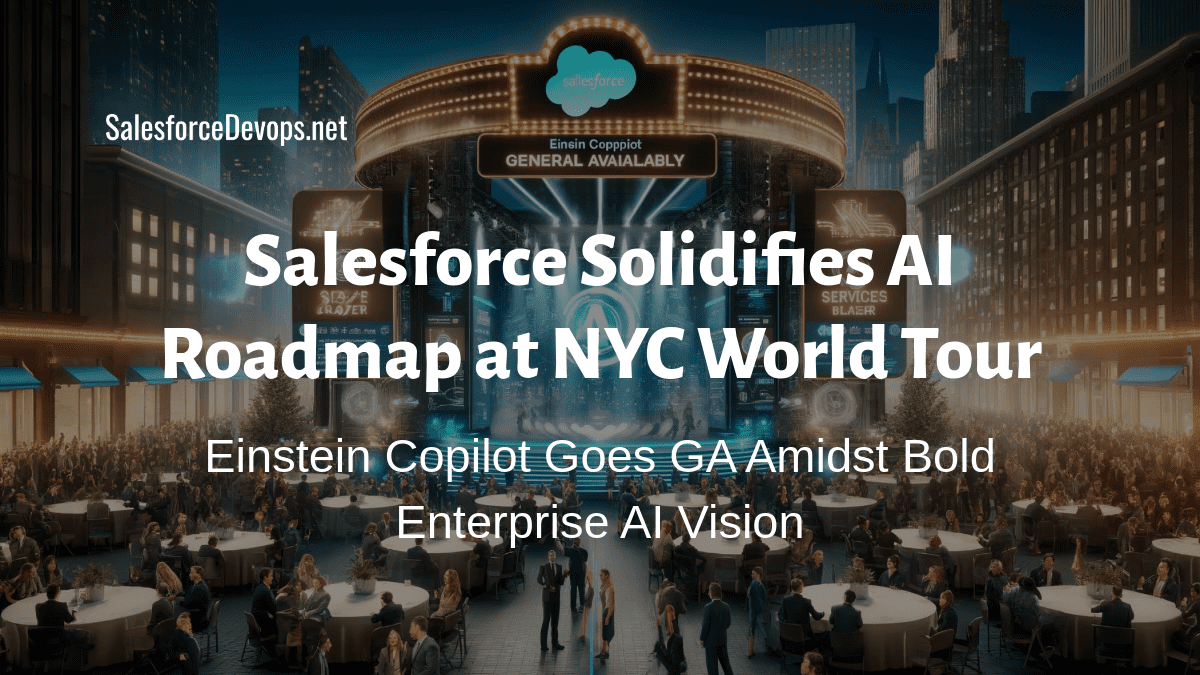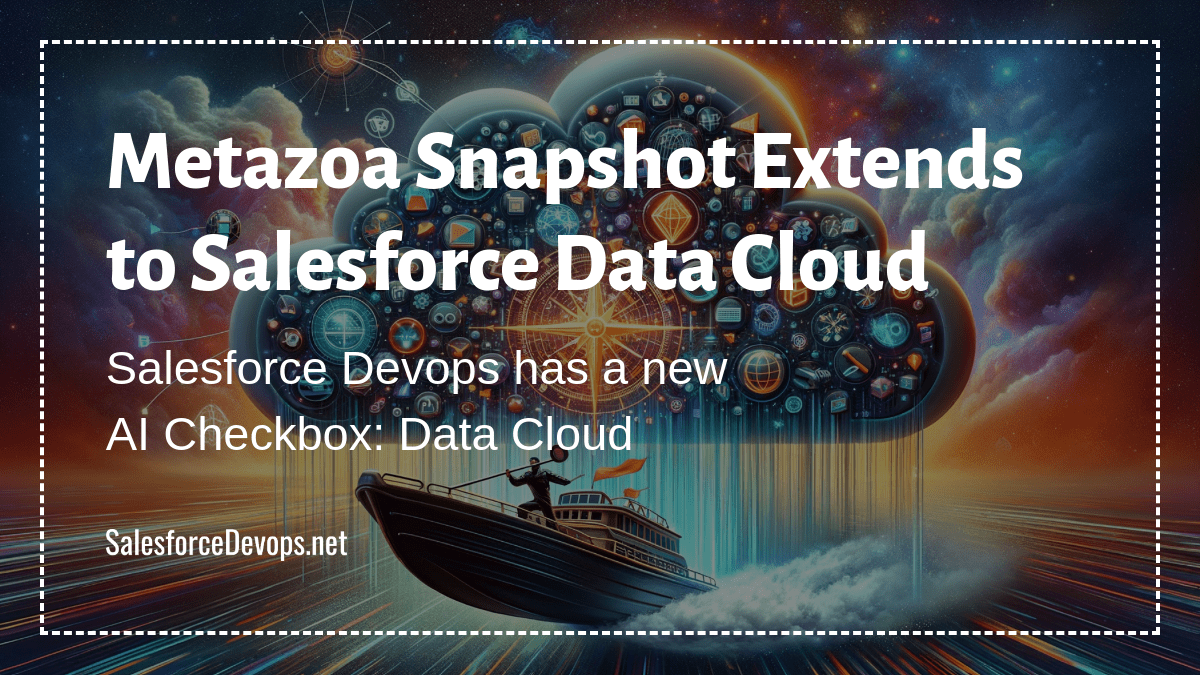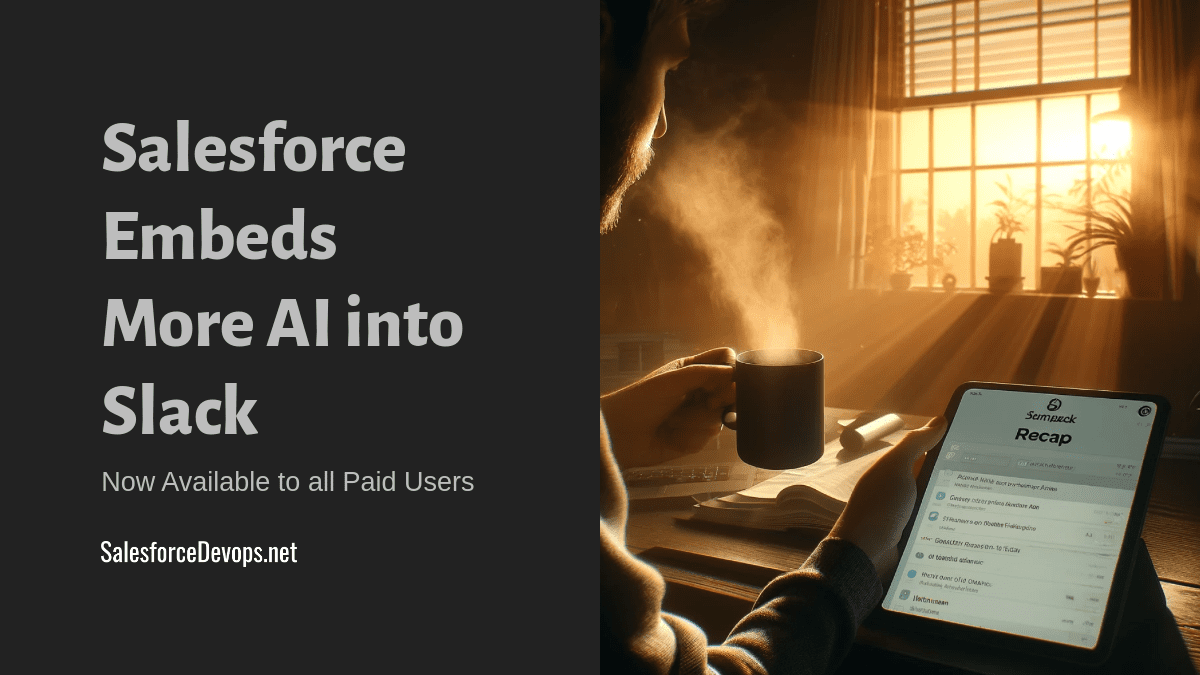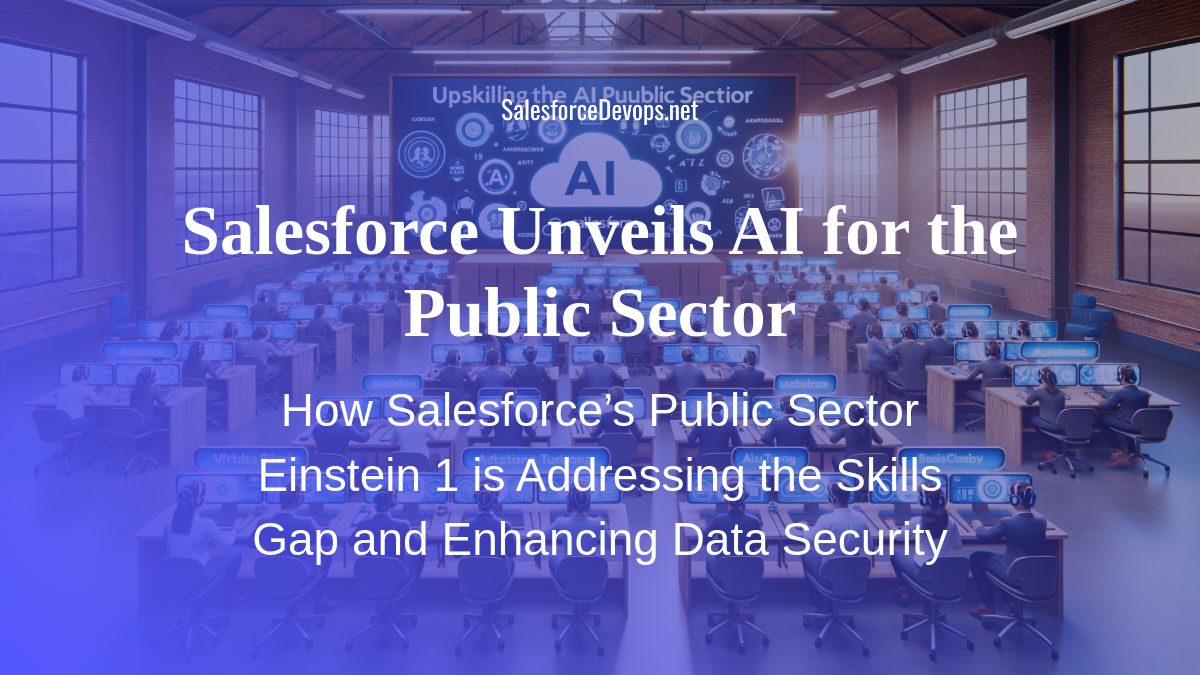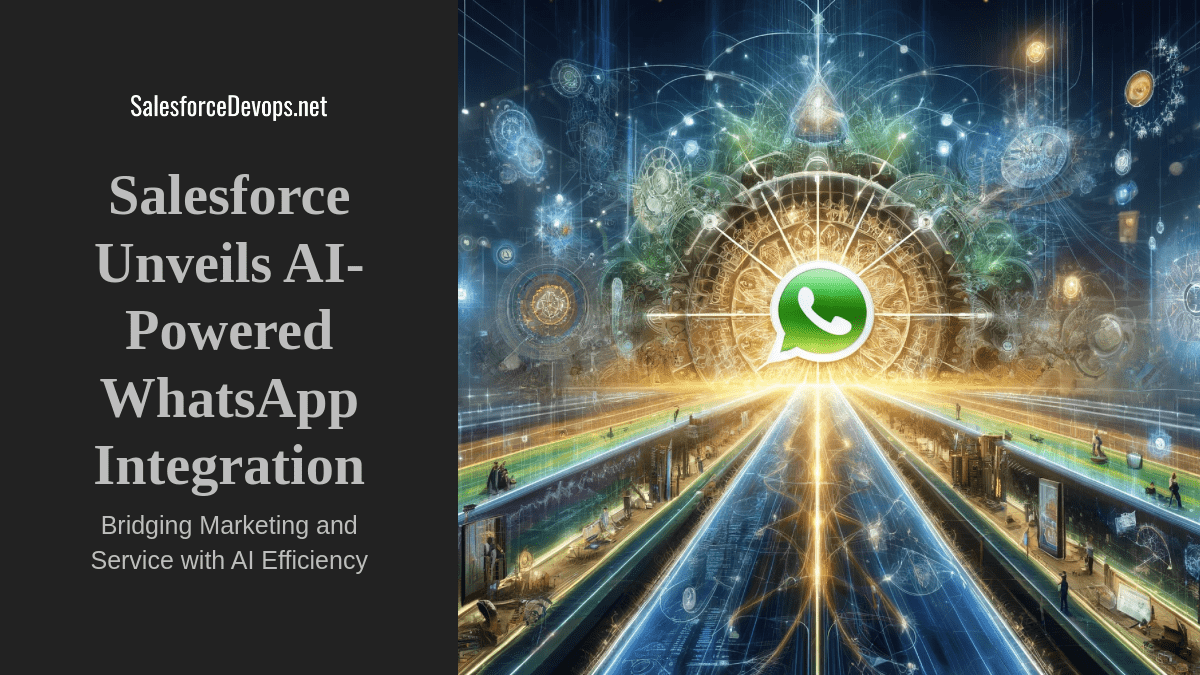TrailblazerDX 2024 Reporter’s Notebook
A rainy dawn broke over San Francisco yesterday when thousands of developers, admins, and tech enthusiasts gathered at the Moscone Center for TrailblazerDX 2024. The air buzzed with anticipation as attendees eagerly awaited the keynote session, where Salesforce was set to unveil the latest innovations in their AI journey.
Just six months earlier, at Dreamforce, Salesforce had made bold promises about the future of AI in their ecosystem. Now, the question on everyone’s mind was, “Did they deliver?” The answer, as we would soon discover, was a resounding yes.
Amidst the sea of Trailblazers, I navigated the bustling expo hall, weaving through booths showcasing an array of cutting-edge apps and solutions. There were lots of hands-on learning labs. The energy was palpable, with developers excitedly discussing the potential of generative AI and low-code tools to transform their workflows.
Table of contents
Human at the Helm: Balancing AI and Human Judgment
My day started with a breakfast panel with Paula Goldman, Salesforce’s Chief Ethical and Humane Use Officer, and Silvio Savarese, the company’s Chief Scientist. The conversation centered around the concept of “human at the helm,” a philosophy that emphasizes the importance of human judgment and control in the age of autonomous AI systems.

Goldman articulated the shift from “human in the loop” to “human at the helm” with clarity and conviction. “With this current generation of AI, we’re moving from AI not just creating content, but taking actions on our behalf,” she explained. “That’s a big deal… We need more powerful controls now.”
These controls, Goldman elaborated, include tools like Prompt Builder for crafting effective prompts, Audit Trails for assessing AI’s performance, and robust data governance through Salesforce’s Data Cloud. The goal, she emphasized, is to empower humans to guide AI outcomes while harnessing the technology’s efficiency gains.
Savarese added, “AI can help identify issues across millions of transactions that humans might not spot. And AI can empower us to use our judgment to make adjustments based on the needs of our organization.”

It seems clear that Salesforce’s approach to AI is grounded in a deep respect for human agency and judgment. By providing the tools and frameworks needed to maintain control over AI systems, the company is enabling organizations to reap the benefits of the technology while mitigating potential risks.
Keynote Highlights
As I made my way to the keynote hall, I couldn’t help but reflect on the significance of this moment. The rapid advancements in AI over the past year had left many organizations scrambling to keep pace. Salesforce, however, seemed poised to lead the charge, empowering their community with the tools and knowledge needed to harness the power of AI responsibly.
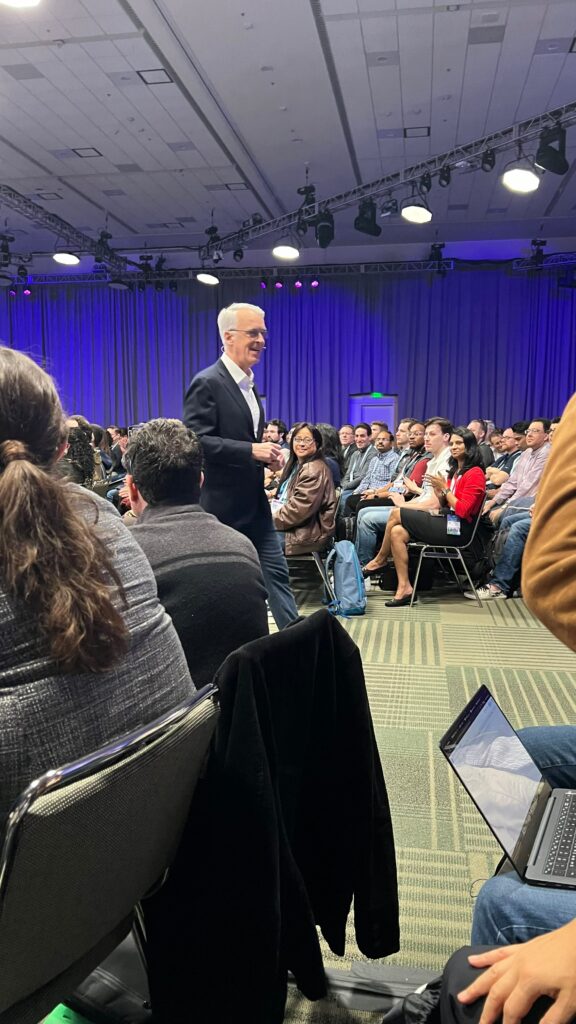
The keynote session was led by Salesforce co-founder and Slack CTO Parker Harris. “We’re moving into the world of autonomy,” Harris declared, “where AI agents will help us do our jobs more efficiently and effectively than ever before.” He painted a picture of a future where digital twins and AI assistants work alongside humans, augmenting our capabilities and freeing us to focus on higher-value tasks.
The centerpiece of the keynote was undoubtedly the unveiling of Einstein 1 Studio, a suite of low-code tools designed to democratize AI development. With Prompt Builder, Copilot Builder, and Model Builder, admins and developers now had the power to create and customize AI experiences tailored to their organizations’ unique needs.
Harris emphasized the importance of grounding AI in trusted enterprise data, a theme that would resurface throughout the event. “Your AI is only as good as the data you feed it,” he reminded the audience, underscoring Salesforce’s commitment to data integrity and security.
Attendees buzzed with excitement, eager to dive into the hands-on workshops and sessions that awaited them. It was clear that Salesforce had delivered on their promises, setting the stage for a new era of AI-powered innovation.
Developers and AI: A New Era of Innovation
I joined a panel discussion with Clara Shih, CEO of Salesforce AI, Muralidhar Krishnaprasad, EVP of Engineering for AI, Data, and MuleSoft Intelligence, Jayesh Govindarajan, SVP of Salesforce AI, and Alice Steinglass, EVP, and GM of Salesforce Platform. The topic at hand: how AI is transforming the role of developers and the apps they build.
Steinglass captured the sentiment succinctly: “Instead of hard coding every single click path and every single possibility of UI on the page, we can now harness these APIs to have conversations at runtime to dynamically compose together actions.”
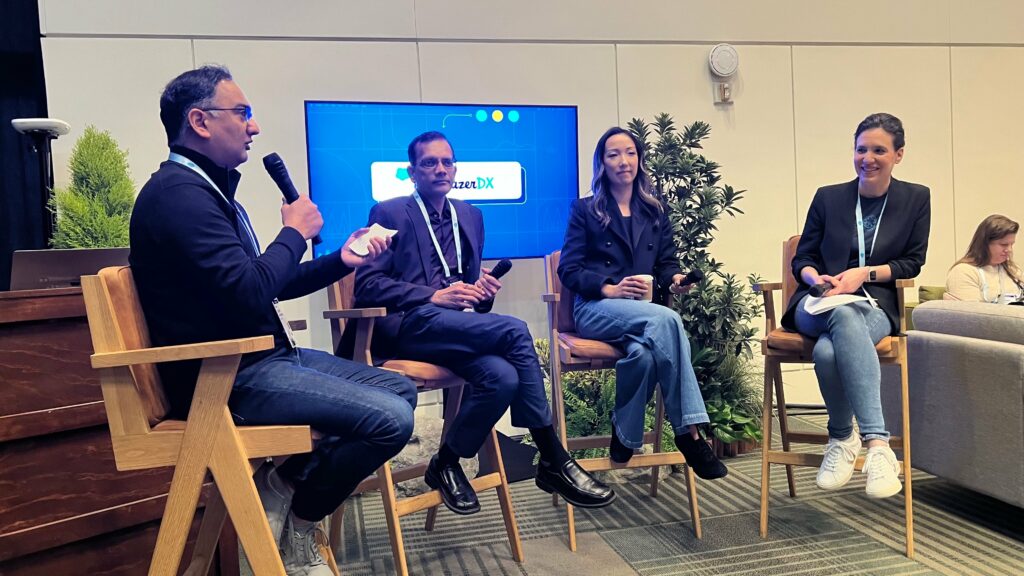
The implications are profound. Developers can now focus on creating reusable building blocks of business logic, while AI assists in understanding user intent and dynamically assembling the appropriate components to deliver personalized experiences.
Krishnaprasad emphasized the importance of grounding AI in trusted enterprise data, a point that resonated throughout the discussion. “Really making sure you surround your AI with the right data is critical to your success,” he noted.
Shih added, “AI is only as good as the data that’s used to train it, fine-tune it, and ground it. Which means putting the right context into the prompts to pass it, right? That’s why you go to ChatGPT and ask, ‘What’s my sales forecast?’ ChatGPT has no idea. It doesn’t know who you are, doesn’t know what opportunities you have… We have the data, the metadata, and the business logic that every one of our customers has built into their Salesforce.”
The AI Pricing Conundrum: Haves and Have Nots
Amidst the excitement surrounding Salesforce’s AI innovations, a palpable undercurrent of concern emerged during my VIP interview with John Kucera, SVP of Product Management, and Muralidhar Krishnaprasad. The topic of discussion: the accessibility of AI features and the potential for a divide between the “haves” and “have nots” within the Salesforce ecosystem.
Kucera acknowledged the challenge head-on. “We feel confident that with these price points, the value is justified by the productivity gains and efficiencies realized,” he stated. “However, we recognize that the current packaging may create barriers for some customers.”
The crux of the issue lies in the fact that access to advanced AI capabilities is currently limited to higher-tier licenses, such as Einstein 1 (formerly Unlimited Edition Plus) or add-ons like Einstein for Sales and Einstein for Service. For many organizations, particularly smaller businesses or those with tighter budgets, these price points may be out of reach.
Krishnaprasad offered a glimmer of hope, pointing to the trajectory of previous Salesforce innovations. “If you look at the history of some of our past predictive features, you’ll see a journey from premium to standard packaging over time,” he noted. “As inference costs decrease and models become more efficient, we envision a future where AI capabilities could be more widely dispersed throughout the platform.”
This sentiment was echoed by Kucera, who drew parallels to the evolution of consumer technology. “Just as we’ve seen with smartphones and other innovations, the most advanced features often start as premium offerings before becoming more accessible over time.”
As I left the interview, it was clear that Salesforce recognizes the need to balance the value of its AI innovations with the desire for broader democratization. While the path forward may not be immediate, the company’s track record of iterative improvement and customer-centric development offers hope for a more inclusive AI future.
Data Cloud: The Foundation for Enterprise AI
I had the opportunity to dive deeper into the role of Data Cloud with Muralidhar Krishnaprasad. Our one-on-one discussion revealed the critical importance of this unified data platform in enabling enterprise-wide AI adoption and digital transformation.
Krishnaprasad emphasized Data Cloud’s unique ability to bridge the gap between IT and business teams. “Data Cloud helps IT leverage their existing data investments while empowering business users to access and utilize that data without depending on IT for every task,” he explained. “This is a game-changer for organizations looking to accelerate their digital transformation efforts.”
I dug into how Salesforce managed to score the Gartner Magic Quadrant Leader rating for Data Cloud. The platform’s open architecture and “Bring Your Own Lake” capabilities were key differentiators, allowing seamless integration with existing data investments across platforms like Snowflake, Redshift, and more. By enabling organizations to unify their data without costly and time-consuming migrations, Data Cloud creates a solid foundation for AI-driven insights and actions.
Krishnaprasad also highlighted the importance of Data Cloud’s advanced features, such as materialized views and federated queries, in delivering real-time, personalized experiences. “With Data Clouds materialized composite objects, we can load relevant data into memory, ensuring sub-second response times for real-time interactions and actions.”
As our conversation ended, it was evident that Data Cloud plays a pivotal role in Salesforce’s AI strategy. By breaking down data silos and providing a unified platform for AI development, Data Cloud empowers organizations to harness the full potential of their data and drive enterprise-wide innovation.
Promises Kept
The introduction of Einstein 1 Studio, with its suite of low-code AI development tools, marked a significant milestone in democratizing AI access for admins and developers alike. The unveiling of Einstein Copilot showcased the potential for conversational AI to transform the way we work, while the ability to embed AI capabilities across the platform opened endless possibilities for developers to create intelligent, personalized experiences.
Yet, amidst the excitement, the challenges surrounding AI pricing and accessibility lingered. As Salesforce continues to push the boundaries of what’s possible with AI, it must also grapple with the responsibility of ensuring that these transformative technologies are within reach for organizations of all sizes and budgets.
The road ahead is undoubtedly complex, but one thing is clear: Salesforce is committed to leading the charge in the responsible and ethical development of AI. By placing humans at the helm, grounding AI in trusted enterprise data, and fostering a vibrant community of learning and collaboration, the company is setting the standard for the future of AI in the enterprise.
